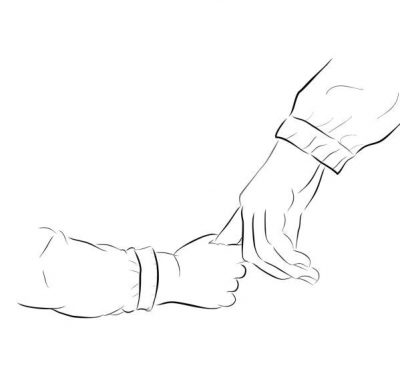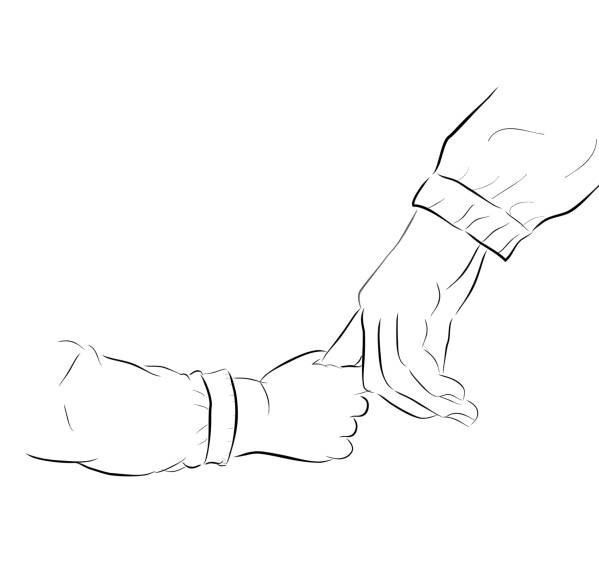
“You shall love the Lord your God with all your heart, with all your soul, and with all your strength. “And these words which I command you today shall be in your heart. You shall teach them diligently to your children, and shall talk of them when you sit in your house, when you walk by the way, when you lie down, and when you rise up. You shall bind them as a sign on your hand, and they shall be as frontlets between your eyes. You shall write them on the doorposts of your house and on your gates.” Deut. 6:5-9
So we have this challenge. Regulate our own emotions, and teach our children to regulate theirs. Hard work. Not an easy task. I have depended on God’s Word, promises, commandments, comforts to help guide my way through marriage and parenting for many years. I have seen His faithfulness. Time and time again.
This scripture has resonated with me from the very beginning of this motherhood journey. I wanted to to lead my children to God, and his way for relationship daily. (Of course my husband was apart of this, but I am referring to the many hours daily I am with our sons because I home school, while my husband is at work all day.) I am going to share useful tools, that God worked through to grow our sons. I gleaned these tools, and thoughts, through prayer, asking God for wisdom daily, and through various resources. It seems God brought little nuggets of gold through one little way and another. But I do want to share, that using these practical tools, always coincided with prayer, and the scriptures. Teach. All day long. The scriptures. It was a priority. When facing each encounter of life, we taught the scriptures God has provided for us, that coincide. There is a wealth of biblical insight into anger, relationships, love, parenting, children’s roles. Parent’s roles. Structure. Order. And so on. God’s wisdom. There is nothing better, no substitute, nothing greater than God and His Word.
So, I had prayed for years to be a mother, almost lost our firstborn after stroke at birth. Children are indeed gifts from God and miracles. I was so thankful God saved his life. The years that followed would be severely challenging-and deeply rewarding. Motherhood in general is challenging and stretches us so much. But having a son who had a stroke (he is 18 now, by the way, and is happy to give blessing to me to share this all with you) had a lot of extra challenges. His everyday processing and comprehending and putting things together in life, was very challenged.
I have had a few mothers here and there over the years ask me how I helped my son(s) to manage emotions. I have two sons. It started with our firstborn pediatric stroke survivor, but many of these things used similarly with our younger son as well, only meeting his needs specific to him.
- HAIR DRYER (or you could use knobs on a stove if no hair dryer) – I looked at a hair dryer one day. And noticed the settings. I used this to show may son. Three settings. Low, Medium, High. This is like our feelings. For example: low on a hair dryer is equal to “irritation” or “frustration”. Medium setting is equal to our emotions increasing to feelings of anger. High on the hair dryer is our highest level of anger. We do not want our “irritation” to become “high” gear. Our goal is to work together to recognize when we “feel” our emotions begin to turn on, talk it through, and find ways to manage them, so that we do not go into high speed anger and do things that are hurtful, harmful, destructive.
2. EMPATHY – we need to be able to empathize with our child’s struggles. For example: when my son would build Legos, which is a activity that he loved, yet, at times became so frustrating, intense, overwhelming, and eventually outbursts of anger, etc. We need to patiently and lovingly, assure, we understand this is super difficult. But be careful to not dwell there a long, long, time and continue in the empathy so long, that we are becoming so emotional that we cannot be the “strength” and help our child needs. I just remember the emotions feeling so deep and heavy for my suffering child. I knew that every THING was hard for him to do. To think through. But at some point, soon after empathizing, we must then, work to come out of the emotion and in a matter of fact way engage back into life, not emotions, make the next move.
3. STUDY – study your child. My son did not know what a feeling was. He did not know how to recognize what he was feeling. He would go from appearing calm and collected, to outburst in anger, and cries, and agony in what seemed a split second. It was shocking and very upsetting to me. Over and over again.
So studying my child was so very helpful and necessary. I would plan times to watch him do an activity that I know may challenge him emotionally. Legos is a great example. I would tell him how Legos is supposed to be a fun and rewarding time of play and enjoyment. To work hard at something, and to accomplish a goal. But all goals require effort, and time to accomplish. Sometimes working on even the fun goals, can feel frustrating. I would set aside time to watch him, or even sit next to him. I would see how his building was coming along. I would encourage him a little here and there. I would give times where I was quiet and just watching and observing. The main goal for me, was to check in with him to see how he was feeling. If it seemed he was doing pretty well, building away without too much effort, and appeared at ease, I would ask him how he feels?
Getting him to start learning to notice and pay attention to his moods and emotions from one moment to the next was so important. Are you feeling pretty good? Happy? Pleasant? Then I would watch some more. Does he seem intense at any point? Pay attention to his body language, breathing in with frustrated breaths. Stressed, or relaxed? If you pick up on any possible stress, immediately ask him how he is feeling? He may say “I cannot get this piece to go the way I want it to!”. But make sure he can recognize the feeling. Help him assess what the feeling is. Frustrated. Then decide what to do with this frustration and show him he has choices. Take a deep breath. Stop everything and just sit there to rest for a minute or two. Take a break and go to a quiet place for a few minutes. Does he need to squeeze a stress ball? I found that at the moment I detected stress, it was a good time to teach him, to back away from the stress, and do one of these other things. Then, after a certain amount of time, revisit the project. Plan with him, how we might work together to overcome this portion of the project that is stressing him.
Looking ahead to the goal, of eventually, over time, he will be able to notice these emotions for himself, and either deep breathe, and/or activate some of these other coping skills on his own, and proceed further into the project, or take a break.
4. MOM TAKE DEEP BREATHS – When she feels her emotions being triggered, and it feels like an emotional explosion may occur in herself, step away. Every time, and this was many times a day, I felt highly emotional and noticed my own frustration rising up, I would need self-control to step away, go into a quiet place, if only two minutes. I would get on my knees, because it placed myself “lowly”, and in submission to my God on High. He knows all things and is all powerful. Not that I have to be on my knees to know this, or show this. It just helped me to get on my knees when I could, as my heart joined with in a lowly, humble pleading with the God of the Universe to lift me up to carry on. I would ask Him to give me strength, and wisdom. I would thank Him that He promises to give me all that I need . Then I would go back out and enter back into the role of motherhood again.
Our goal is to help them to be men who can stand in the world and be strong.
Able to handle life’s battles with integrity and honor-in the knowledge and strength of God.
5. COGNITIVE BEHAVIOR THERAPY -Someone had asked if I had ever heard of this particular therapy. I had not . I researched it online, and quickly realized it was something that just made sense. I made it our own. Small goals, reward. Repeat. Reward any ounce of effort given. Pick a particular setting where there is normally anger outbursts/set-offs. And plan a small goal for the child. He may, and most likely, if like my son, would not remember any of the steps at all in the heat of the moment, to accomplish the goal. Example might be: When you help him see he is feeling frustration on a low level, stopping the project and grabbing the stress ball. Or stopping to take in a deep breath. If you see any ounce of effort to even try to go towards this goal, even if you need to remind him, and you lead him to the “action” he is trading in for lashing out anger, give him some a small reward. Repeat, repeat, repeat. Pick a reward that you know is going to matter to him. I started with baseball cards. I bought a super inexpensive pack of cards, and he received one each time, he made an effort, (I saw this effort grow over time) until he had a whole book full of them. It’s nice to look back and see how far you have come.
6. BE MOTIVATED MOTHER – by the hero you are. God gave you this child. He made you his mother. He knows what He is doing. He will give you all you need. Just be diligent to keep seeking Him. Also, we get to apologize when we do not regulate our own emotions properly, and ask God to forgive us, and help us to do better the next round. Humility and showing we are all a work in progress, helps our sons believe they are not alone. God does not expect perfect parents or none of us would be parents. He chose us to be parents. God the Father is the Perfect Parent and we can learn so much from Him.
I love this beautiful quote by the genius, inventor.
“At seven, my teacher thought I was a dunce and requested that I be removed from the school. But my mother believed that God had a special plan for me. Though I did not have my mother very long, she cast over me an influence which lasted all my life. The good effect of those years that she taught me at home I can never lose. If it had not been for her faith in me at a critical time in my experience, I should very likely never have become an inventor” – Thomas Edison
7. OBEDIENCE AND RESPECT – Do not dismiss the high value of obedience and respect. No excuses for not respecting mom and dad. No name calling. No hitting. Truth only can be spoken. No saying “I hate you” (my sons never even knew that phrase until a long time late in life) but rather “I feel so angry right now”. Do not allow them to say “You hate me”. Because that is just not truth. Our feelings will lie to us, jerk us around and cause chaos. We must require truth. While our son had extra struggles due to a stroke, we still believed in the values God designed for our children and family. We do not live by our feelings, or emotions, or allow them to control us or others. We need to be committed as parent and child to be learners.
8. REBELLION – Is my child rebellious? Is this rebellion? Disrespect? Disobedience? Set rules. What is acceptable forms of expressing emotions. What is not acceptable. Give the parameters and boundaries. This is security to a child. This is security to every human. When we do not have parameters and boundaries, we are flailing around in the wild.
Think about how cars are regulated on a road with regulatory signs. What would the world look like without any order on the road? Rules, boundaries, holding to them, bring order.
9. GIVE A TEST- Give direct eye contact when speaking to your child. Give grace that little boys are easily distracted, full of energy, and processing a lot at any given moment. So when giving him a direct command to obey, look him in the eye. Give short, and to the point instruction. Start with little. Do not overwhelm with too many words, and not your emotions. Be firm, be direct. If he responds immediately to what you have told him to do. He has done well. He has obeyed. It is for his good, his security. His protection. His safety. Look at it this way. If you saw him running into the street, would you shout “stop” because a car was coming, and want him to stop immediately? Or would you allow him excuses, even emotions, or other reasons why he just supposedly could not do what you told him to do. Pay attention to when he has outbursts. Is it an outburst because he is rebelling against authority and just doesn’t want to obey? If he was calm one minute ago, and then you tell him to take out garbage, and he throws a fit, or expresses any tiny negative word or body language, that is a sign that is quite possible rebellion. Which needs correction and consequences. We need to be intuned to what was happening at any given moment, and analyze what the triggers are from.
10. REQUIRE OBEDIENCE. There is an obedience that must be required. Then there is grace for the situations when he is genuinely frustrated over issues of life that come up. We need to be able to see the difference between disrespecting us, and disobeying, and grace that he just “tried to tie his shoe” and it set him off because he is trying and it is difficult. It’s one thing to say, put your toys away right now and they are required to go put the toys away. That is a basic, simple, command, that must be obeyed. It’s another thing to tell the child too many steps, that he may not be able to retain, and expect him to fulfill this. If you tell your child to go put his shoes on, and he obeys, that is great! If he then proceeds to tie the shoes, and struggles to process through tying the shoe, then that is not a matter of obedience or disobedience, that is a matter of genuine struggle.
It’s a matter of attitude of the heart in us and our child. We should not be correcting our children out of irritation. Of course, we are going to feel irritated, frustrated, and more at times. It is our responsibility to manage those things, catch them ourselves, and handle them appropriately so that we are not reacting and screaming. Our motivation to correct, teach, train is all for love, for the well-being of their body, mind, heart, soul, future. God understands our weakness and we can take our irritation to Him and ask Him to please help us to be more patient, kind, strong, wise.
11. ASSESS – I was not sure how much my son could handle in steps given to him. So I tested him. I started out with basic, simple, one step instructions. With simple vocabulary, and watched to see if he obeyed. If he did not, then I knew this was rebellion in his heart. But if I gave him too many instructions with too many steps, he may become overloaded, and not even know how to process what was told him to do, and want to please, but he cannot obey, because it was information overload.
12. ALL THINGS BECAUSE WE LOVE – When my son disrespected me, I needed to deliver a consequence. Make sure any consequences for disrespect and disobedience be given out of pure love. Not in anger. But for their well-being. NOT out of irritation. I need to look at this little boy, as the man I hope he will be molded into one day. It is this future man, that I am molding in my son, because I know that if he does not respect and obey the most important people in his life as a child – His parents – that he will not do well in life, in honoring and respecting God, or others.
13. TALK WITH HIM A LOT – Do all kinds of things together. Talk about everything you are doing. I had to be near, close, and in the midst of his everyday life, and talking about what was happening. Constantly. I didn’t have to. I could have chosen not to. But I knew this is what he needed. He needed my heart, my eyes, to see for him, and direct him. Explain to him – life. Life with feelings, happening, responses. I had already been doing this with my son, before his neurological evaluation at age 9, and when the doctor came back with hard news of the genuine neurological challenges for my son, one of his strong points of recommendations was doing the same thing as I was already doing – I was so confirmed I was on the right track and to keep going, and amp it up. The doctor also warned he may not like having all this talking, and discussing various scenarios of daily ins and outs or relating with the world, and people around, but it is so necessary.
14. NURTURE SIBLING RELATIONSHIPS – Watch how they interact. Encourage every single good moment you see. And be ready to redirect every wrong moment of strife between siblings. Sit with them together and make goals for how they should interact with one another during play time. Sit altogether and play games. I highly recommend games that involve movement when boys are young. There is evidence scientifically that boys need movement, and learn better while moving. You can play games together that involve sitting on floor and rolling a ball one to another. (ask me if you want ideas for other physical moving games to engage relationships) And the person who receives the ball, has to say something kind or something that they like about the person they are going to roll the ball to next. I just recommend being intentional in planning “games” so it is fun and engaging for wiggly boys, that also involve ways to connect them, and challenge them relationally. Working together. Encouraging one another. This does not come naturally. And some children, like my son, needed everything to be shown to him, and needed help to engage in “practicing” relational skills, in being equipped eventually as he matured for the real deal of life.
15. STORY CARDS – you can purchase cards online for helping children observe pictures and talk about what others are doing, feeling. How they might react poorly, and what would be the good result if they responded well. For example: A card may have a picture of a boy in his yard and in process of running into street chasing his ball, while a man in a car is driving down the road and sees the boy and ball. The cards show the man’s emotions on his face (this can help discuss our emotions in scenarios), the emotions of the boy almost getting the ball ran over (tears or fear), etc. Another card: A picnic. Family together. Dad is cooking on grill. A baby is sitting nearby crying. And the boys are standing wanting to play catch with dad. Discussing all these various relational happenings is so helpful. The dad happily cooking, but also wanting to play ball with sons. The mother preparing her table for the family to eat at and the emotions for her while baby is crying. Etc. Coming up with ideas to further the story, and be creative in adding to the story to make it a happy end. Like how the boys jumped in to help the baby who was crying, etc. so on.
You see, I wanted my sons to have a relationship with God. I wanted them to see that relationships matter. Unhealthily managed anger, and emotional breakdowns do not produce anything good for the people around us. It destroys relationships if left untouched. Life is all about relationship with God and others. That is why God created us.
My strength? To do this?
Jesus Christ. He deserves every bit of praise! Without His saving work in me life, and His Holy Word to guide me, I would not be able to do any of this. Communing with the Lord every day, minute by minute in prayers. I prayed with my sons many times a day. Pausing in the moment, and praying. Stopping Legos, when we realized there is frustration, praying. Going to the scriptures, and what God says about self-control. Asking, asking, God for help. Asking Him for self-control, and so much more.
I also used a LOT of stories in the bible of men and women who were weak. There is the “left” handed man in Judges, who at that time in the culture was considered disabled, yet God used to defeat an enemy, because of the “left-handedness”. There is Moses. God called him to speak to Pharaoh, in order to deliver God’s people held in bondage in Egypt. The bible says, Moses was weak in speech, but God assured He would give him all he needed. Sure enough God used Moses to set the Israelites free. I could go on, to tell of many heroes of faith. They were weak in and of themselves, but God gave them strength. Sharing these rich stories to my sons was so important. They were able to see they are not alone in their struggles and weaknesses. And see God was their help, to overcome.
I read a devotional today, that took me back to the days when our sons were little. In particular the season when Isaac our stroke survivor, was about 10 or 11. He was trying to learn cursive writing. Every new thing was like running up a mountain with no end in sight of when we would reach the top. He literally agonized. I could see the immense effort his brain was processing through to maneuver back and forth and around with forming one letter. He tried with every fiber of his being. I placed my hand over my son’s, and I decided I would guide him. My hand would guide his, over and over again. I would do this at every lesson, and believe that eventually he would be able to do this on his own. My heart ached when I saw his struggle. I held back tears as I saw how much my son wanted to do so many things, yet it took such an act of the will, emotions, and everything within to try to attempt to make things happen. But I set aside my emotions, and looked to my Father in heaven. Who I knew loves me, and my sons. I knew my Father had His mighty hand upon me, guiding me daily, in love, and that enabled me to guide my son, his hand, his life, and believe God’s power would overcome.
I want to wrap this up, with this devotional sent to me the other day:
The Mighty One –Genesis 49:24
“But his bow remained steady, his strong arms stayed limber, because of the hand of the Mighty One of Jacob,
because of the Shepherd, the Rock of Israel”
“The strength God gives to His “Josephs” (God’s people in need) is REAL strength; it is not a boasted valor, a fiction, a thing which men talk but which ends in smoke; it is TRUE-DIVINE STRENGTH. How could Joseph be strong in the midst of adversity-in the midst of the battle? Because God enabled him. There is nothing we can do without the power of God. All TRUE strength comes from the “Mighty One of Jacob”. Notice God is represented as putting His hands on Joseph’s hands, placing His arms on Joseph’s arms. Just as a parent teaches his children, so the Lord teaches them that fear Him. He puts His arms upon them, stooping from His Throne and lays His hand upon the child’s hand, stretching His arm upon the arm of Joseph, that he may be made strong! May our bows remain unmoved as we ask God’s mighty hand to stay upon us, and be our strength. All glory to Jacob’s God.”
This is Isaac’s handwriting, as he wrote this beautiful Word today:

My sons are 18 and 16. God has done above and beyond what we could imagine. He is not finished yet. Under the covering of God, their parental covering of mother and father – and honoring our continued teaching, instruction, correction, and love, training – that is for them and their continued future success as young men of God.
Most importantly the joy of my heart, is to see them exercise their personal relationships with Jesus their Lord.
“I am the God of your father, the God of Abraham, the God of Isaac and the God of Jacob.” – Exodus 3:6
“Come to Me, all you who are weary and burdened, and I will give you rest. Take my yoke upon you and learn from me, for I am gentle and humble in heart, and you will find rest for your souls. For my yoke is easy and my burden is light.” Matthew 11:28-30
“Children, obey your parents in the Lord, for this is right. “Honor your father and mother”—which is the first commandment with a promise— “so that it may go well with you and that you may enjoy long life on the earth” Eph. 6:1-3
“Praise be to the God and Father of our Lord Jesus Christ, the Father of compassion and the God of all comfort, who comforts us in all our troubles, so that we can comfort those in any trouble with the comfort we ourselves receive from God.”
2 Cor. 1:3-4
“But the fruit of the Spirit is love, joy, peace, patience, kindness, goodness, faithfulness, gentleness and self-control…” Gal. 5:22-23
IF YOU HAVE ANY QUESTIONS AT ALL ABOUT ANY OF THIS, PLEASE FEEL FREE TO ASK IN THE COMMENTS BELOW.
May God bless you and your family!




